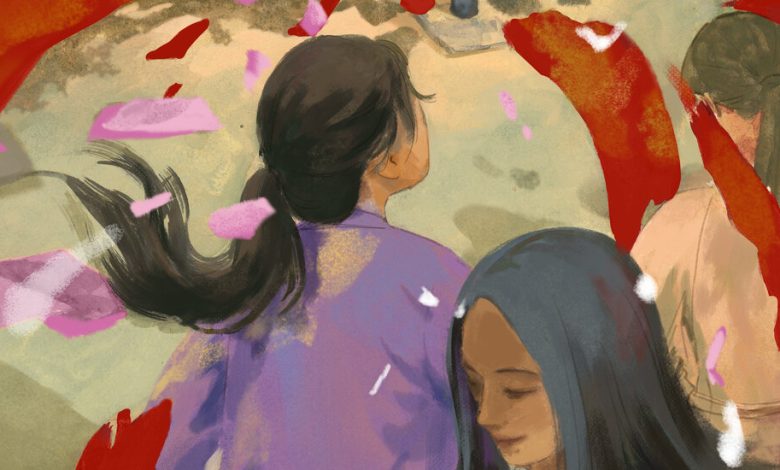Young Chinese Women Are Defying the Communist Party

The pressure to marry began when Amiee was in her early 20s.
By 25, her Chinese parents were accusing her of causing them a public loss of face because she still had no plans to wed. Her father warned her that women are worth less to a man as they near the age of 30, when — according to Chinese government propaganda — their peak childbearing time has passed. When Amiee was 29, her mother threatened to jump off a building if she didn’t find a husband.
At family gatherings like Chinese New Year, relatives badgered her to help her “entire clan find peace,” she told me, and at work she was pressured into company-organized blind dates, chaperoned by several colleagues. These were “terrifying,” she said.
Amiee — whose full name is being withheld to avoid potential repercussions for questioning government policy — wasn’t against marriage, per se. She simply hadn’t found her soul mate at that age and didn’t want to rush into marriage to please her parents or a government eager to push up the birthrate. Today, still single and with a successful career in public relations, she is finally enjoying some peace; she’s 34, past what China’s government says is a woman’s reproductive prime, and her family has stopped pressuring her.
I hear similar stories from single women across China, where sexist state propaganda labels single professional women older than 27 as sheng nu,or leftover women. While conducting fieldwork in China for my Ph.D. in sociology from 2011 to 2013, I spoke with many who endured relationships they didn’t want, often making great personal, financial and career compromises. I wanted to tell them to just walk away.
Now many young Chinese women are doing exactly that, delaying or shunning marriage and childbirth altogether, mirroring the journey of women in other, wealthier patriarchal East Asian societies such as Japan, South Korea and Taiwan. As individuals, these Chinese women are generally unwilling to challenge official policy. But through their reproductive choices, they collectively pose a radical and complicated problem for the Chinese Communist Party.
Facing a shrinking population and a long-term economic slowdown, the party wants China’s women to be docile, baby-breeding guarantors of social, economic and demographic stability. Instead, many Chinese women, who now have greater personal freedom and control over their lives than during the early Communist era, are quietly resisting.
In the late 1970s, the government imposed its one-child policy to rein in population growth. But this led to plummeting birthrates, an aging population and a gender imbalance as millions of female fetuses were aborted because of a traditional preference for male heirs. (As of 2020, China still had about 17.5 million more men than women between the ages of 20 and 40, which government media has warned could pose a threat to social stability.) Worried, the government abandoned the one-child policy beginning in 2016, allowing all married couples to have two children and raising that to three in 2021.
But a hoped-for baby boom has not materialized. Marriage registrations have fallen for nine consecutive years leading up to 2022, when they sank to the lowest level since the government began releasing figures in 1986. New births have also continued to fall, with only 9.56 million babies being born last year, the fewest since records began with the founding of Communist China in 1949. The nation’s population shrank in 2022 for the first time in six decades, allowing India to overtake China as the world’s most populous country.
Many young Chinese men are also avoiding marriage. But this seismic demographic shift appears to be driven largely by an increasing unwillingness of women to make the requisite career and lifestyle sacrifices or bear the rising cost of educating children. Recent surveys have shown that young Chinese women have a significantly more negative view of marriage than men. A Communist Youth League survey released in 2021 found that 30.5 percent of urban youths ages 18 to 26 said they “don’t believe in marriage”; 73.4 percent of those respondents were women.
That’s the last thing the party wants to hear. While Mao Zedong famously said that “women hold up half the sky,” President Xi Jinping has made clear that subjugating women is essential to his plans for Chinese modernization. This year, the government began a




